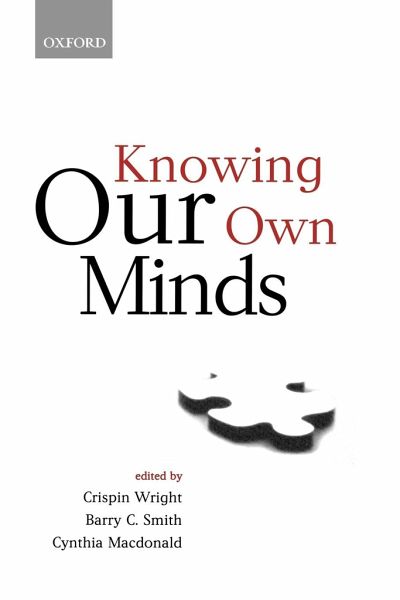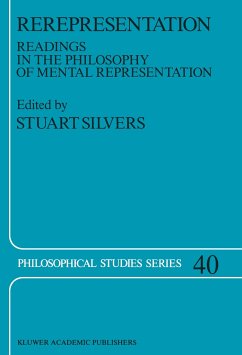
Mind Association Occasional Series
Versandkostenfrei!
Versandfertig in 1-2 Wochen
67,99 €
inkl. MwSt.

PAYBACK Punkte
34 °P sammeln!
self-knowledge and arguments that psychological content is externally -- socially and environmentally -- determined. The final pair of chapters extend the discussion to knowledge of one's own language. Together these original, stimulating, and closely interlinked essays demonstrate the special relevance of self-knowledge to a broad range of issues in epistemology, philosophy of mind, and philosophy of language.
Knowledge of one's own sensations, desires, intentions, thoughts, beliefs, and other attitudes is characteristically different from other kinds of knowledge: it has greater immediacy, authority, and salience. This volume offers a powerful and comprehensive look at current work on this topic, featuring closely interlinked essays by leading figures in the field that examine philosophical questions raised by the distinctive character of self-knowledge, relating it to knowledge of other minds, to rationality and agency, externalist theories of psychological content, and knowledge of language.












